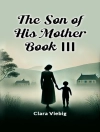In ‘Lost Diaries, ‘ Maurice Baring presents a captivating exploration of personal experience intertwined with historical context, offering readers a window into the fragmented worlds of memory and introspection. Baring employs a distinctively lyrical prose style that marries introspection with vivid imagery, allowing the diaries to transcend mere records of daily life—employing a rich, narrative quality that evokes the fluidity of thought. Set against the backdrop of a tumultuous early 20th century, Baring’s work often echoes the existential quandaries of the period, reflecting on themes of identity, loss, and the passage of time. Maurice Baring was a multifaceted figure: a soldier, journalist, and playwright, whose diverse life experiences heavily influenced his literary output. Growing up in a privileged background, Baring was exposed to art and literature from an early age, which fostered a deep appreciation for both the complexity of the human experience and the art of storytelling. His time spent in war, juxtaposed with his diplomatic career, further enriched his understanding of the fracturing of human connections, making ‘Lost Diaries’ not only a personal reflection but a broader commentary on society. Readers seeking a profound meditation on life’s ephemeral moments will find ‘Lost Diaries’ a compelling journey through both personal and collective narratives. With its elegant prose and rich thematic intricacies, Baring’s work invites readers to reflect on their own memories and the myriad influences that shape human experience, ensuring a resonating effect long after the last page is turned.
A propos de l’auteur
Maurice Baring (1874-1945) was a distinguished British man of letters, known for his versatile literary skills ranging from playwriting to poetry, but perhaps most cherished for his shrewd observational prose. His enduring fascination with culture and the human experience is manifest in his body of work, which includes a plethora of novels, essays, and indeed, the charmingly satirical ‘Lost Diaries’ (1913). The son of a banker, Baring cut a figure as a cosmopolitan intellect, incorporating his vast European travels and experiences as a diplomat and war correspondent into his writing. His literary style is marked by an elegant clarity, wit, and a penchant for irony, making the mundane musings of everyday life both profound and entertaining. Baring’s contributions to literature reflected his broad spectrum of interests, from Russian literature—of which he was an early English popularizer—to the intricate subtleties of social nuances of his own Edwardian society. A contemporary and friend to literary figures like Hilaire Belloc and G.K. Chesterton, Baring’s voice resonated with the intellectual tenor of early 20th-century England, making him a significant though perhaps understated figure in British literary history.












